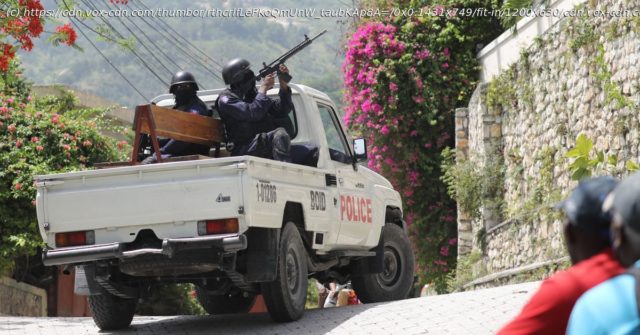America and Haiti’s complex relationship, explained
The assassination of Haiti’s President Jovenel Moise has sent the country into shock and turmoil, sparking discussions in the international community on how to help bring stability. But Haiti’s long history of foreign involvement can’t be ignored, nor can the fact that often, aid was provided whether or not Haiti itself benefitted. On Wednesday, July 7, President Moise was shot 16 times when Hatian officials allege a group of “professional killers’’ stormed his home in a suburb located near Port-au-Prince, Haiti’s capital city. Prime Minister Claude Joseph assumed leadership and promptly declared a two-week state of siege in the country in an attempt to control backlash. However Joseph’s authority is being questioned by some as President Moise had declared Ariel Henry the new Prime Minister only two days before his assassination. Henry was meant to be sworn in this past week. Complicating the issue is the fact that Haiti currently has two conflicting constitutions that give different instructions on what to do when the president is no longer in power. Moise’s hunger for power defined his presidency Moise himself had a tumultuous presidency beginning in 2017, highlighted by his authoritarian tactics and inability to gain the Haitain people’s trust. Soon after he was elected, Moise revived the nation’s army which had been disbanded two decades before. This was a controversial decision in a country still dealing with the aftermath of its catastrophic 2010 earthquake, stoking fears that the army would drain already limited resources. Further skepticism came from the army’s history of human rights abuses and the multiple coups it carried out. The decision to bring the army back set the tone for Moise’s presidency as he continuously prioritized his interests and power over those of the people. In the absence of a functioning legislature, Haitian law allows the President to rule by decree, and in January 2020, Moise refused to hold Parliamentary elections and dismissed all of the country’s elected mayors, consolidating his power. Further exacerbating problems, in February Moise refused to leave office despite legal experts and members of an opposition coalition claiming that his term ended on February 7th. Moise claimed that his presidency was meant to last until 2022, due to a delay in the 2017 election, and his refusal to step down led to mass anger and frustration culminating in public protests and chants of “no to dictatorship”.
Home
United States
USA — Science What the assassination of Haiti’s president means for US foreign policy






